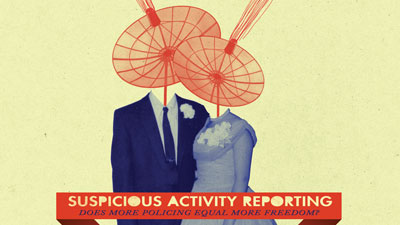No Jobs for the Living
Now more than ever, American’s are concerned about jobs. Why? Because there are none! The economy is shambled and a majority of the American public live in fear from paycheck to paycheck. There is debate regarding how to restore jobs, a scrutinized subject during the recent presidential debates. Yet, a more pertinent question to ask is: how are jobs being lost in the first place? Let’s examine this.
Live by Electronics, Die by Electronics
In the novel, Player Piano, Kurt Vonnegut portrays a post-third world war America, in which machines have virtually taken over. Only a few who have been let into the upper echelon of society have jobs as engineers of machines, while the rest are thrown into the “reeks and wrecks” of manual construction labor.
A few engineers created a new machine named Checker Charlie. Unsurprisingly, Charlie is a checker champion robot, able to algorithmically defeat anyone at checkers. The protagonist, Paul Proteus, the prominent engineer in the society, was matched up against Charlie. Charlie’s engineers affectionately looked on as the match sauntered forward. They felt this was a perfect opportunity to show off their technological prowess.
As Paul proceeded with his beginning moves, he found he was actually ahead of Charlie in the match. He even managed to make one of his pieces a king. However, Paul was skeptical he would actually win—he felt Charlie just had a much more far-seeing plan he just wasn’t able to detect.
Suddenly, Charlie started to make some rather unusual noise. Sweat beaded down the face of the engineers as they tried to conceal their building anxiety. “Fire, Fire!” an assistant came running out of the back door screaming. Checker Charlie was on fire—the heat felt by all. The lights on Charlie’s metallic figure began flickering on and off, a dazzling lightshow finale. Then silence. Poor Charlie was pronounced dead. His connection to life had been unplugged for good.
Paul’s friend who had bet that man would triumph over machine told the frantic engineers, “If Checker Charlie was made to make chumps out of men; he could damn well fix his own connections. Paul looks after his own circuits, let Charlie do the same. Those who live by electronics, die by electronics!”

"If Checker Charlie was made to make chumps out of men; he could damn well fix his own connections."
Fire in the house
This small story illustrates a technological backlash, which American and much of the world today are experiencing on a much grander, macrocosmic level. The fire of technology has changed dramatically in recent years. At first, it was much like a quaint fire place meant to make daily affairs run more smoothly, more conveniently, but now technology has developed into a wild and destructive forest fire. The world is becoming more and more enmeshed within a complex industrialized civilization and we see more and more people fearing for their livelihood. How can we even begin to extinguish this fire?
The Rain of Simplicity
We should strive to find inner fulfillment, which will naturally extinguish the blazing need to derive happiness from externals. Living simply, taking only as much as is necessary to maintain the body and nothing more, gives one the freedom to cultivate higher conscious activities, rather than living just to make ends meet or maintain one’s possessions. High thinking enables one to discriminate what are one’s true needs versus what has been imposed on oneself by a foreign entity, which itself is the beneficiary of your consumption.
It is industrialism, which is the cause of unemployment. Leading a more spiritually-inclined lifestyle by living simply within one’s own means, one can actually begin to cultivate inner fulfillment and true happiness, which doesn’t depend on industry.
Industry is driven by artificial needs. Some person engineers an idea of a product, finds a way to mass produce it, then gets a team to advertise it as a necessity for the public. Such artificial living standards cause people to live beyond what they actually need; thus, there are imbalances like loss of jobs. One may think that industry creates jobs, but with the advent of machines that can do the work for a 100 or more people, this machine culture actually results in more unemployment.





tread
I love Kurt Vonnegut’s books, and I love the way you weaved Player Piano into this issue. So true. We can’t let humans have the jobs because the machines get us the products that we need NOW! whereas humans would take more time and would cost the Kings of Industry more money! At least that is the excuse.